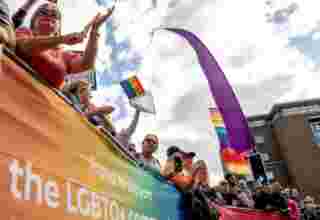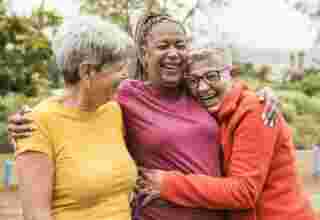A poll of 2,000 UK employees found gender biased language and use of stereotypes is widespread within workplaces, with 42 per cent of women claiming they’ll be asked to make a round compared to just 16 per cent of men.
Females are also more likely (50 per cent vs 21 per cent) to be asked about the wellbeing of their children, and to do menial or admin-based tasks (37 per cent vs 19 per cent).
It also emerged women are made the target of sexist jokes almost three times more than men (43 per cent vs 15 per cent).
The research was commissioned by Samsung UK and Ireland, which has committed to driving greater diversity and inclusion in the tech industry by becoming a Tech Talent Charter signatory.
Adapting over time
It also found those polled hear gender biased language used in their workplace an average of four times a week.
Specific instances included “persistently being called lady, sweetheart, or darling” and “being referred to as a woman ‘of my age’ after requesting a fan.”
And such things aren’t just said in informal chats, as 40 per cent have experienced gender biased language in meetings and 30 per cent during job interviews.
Tanya Weller, founder of employee resource group, Women@Samsung, said: “The findings have revealed some shocking revelations about the stereotypes used towards women at work and how our choice of words is creating barriers to inclusivity in the workplace.
“Like all things, language adapts with time, and we know that as a society, we must evolve with it, by implementing a roadmap that drives greater equality and inclusion.
“For instance, we work closely with Textio to ensure that we set things off as we mean to go on and apply gender inclusive language in all of our job adverts at Samsung UK and Ireland.”
Introducing inclusive language
On a positive note,
-
Tech-savvy Gen Alpha children tend to choose screen time over spending quality time with their families during weekends and their free time from school.
May 21, 2024. Most families these days do not spend enough quality time together, due to t… -
ROSEY DAVIDSON, EXPERT SLEEP CONSULTANT & JUST CHILL BABY SLEEP FOUNDER, ANNOUNCES IT’S TIME FOR BED: THE PERFECT BEDTIME BOOK TO HELP LITTLE ONES DRIFT OFF TO SLEEP
Expert sleep consultant Rosey Davidson has announced the upcoming picture book It’s Time F… -
Vale of Rheidol Railway Festival of Steam – August Bank Holiday weekend
The Vale of Rheidol Railway is hosting a Festival of a Steam this coming August Bank Holid…
Load More Related Articles
-
Top 18 activities those with a physical condition struggle to do – including sleep
Millions of Brits are unable to exercise, sleep or endure long journeys in the car … -
Reimagined fairy tales – as read by comedian Ellie Taylor
Classic fairy tales have been reimagined to see Goldilocks finally get her comeuppance, Ja… -
Top 30 things over 65s do to maintain independence – including gardening
Retirees are determined to maintain their independence in later life, by dressing how they…
Load More By Entertain The Kids
-
Nearly half of LGBTQ+ adults feel uncomfortable watching live sports in person because of homophobia or transphobia
Nearly half of LGBTQ+ adults in the UK feel uncomfortable watching live sporting events in… -
Millions are ‘doing their bit’ to help out in their communities
Millions are ‘doing their bit’ to help out in their communities, according to … -
True acts of heroism include being selfless, brave – and standing up for others
A third consider kindness a modern heroic act while 21 per cent think simply being a good …
Load More In Community
Comments are closed.
Check Also
Top 18 activities those with a physical condition struggle to do – including sleep
Millions of Brits are unable to exercise, sleep or endure long journeys in the car …





















